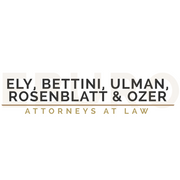3 Possible Defenses to Libel & Slander to Prepare For

Any attorney will tell you that cases of libel and slander are rarely straightforward, and the law has many nuances and gray areas that must be taken into account. If you're filing a defamation lawsuit, there are a number of arguments the defendant could use. To build a legal strategy, work with your attorney to try to anticipate which approach the opposition will attempt to argue. Here are a few common defenses to keep in mind.
3 Potential Defenses in a Defamation Case
1. Proving the Truth of the Statement
For an accusation to be defamatory, it must be untrue. A defendant may try to submit evidence that the statement they made was true, so it was not a violation of the law. Consider this example. A business overcharges a customer for service and refuses to issue a refund. In turn, the customer posts to their social media accounts about the unfair treatment. The business then sues the customer for slander as a result of losing money because of the social media posting. But the customer would have to present proof of the truth of the statement they made, such an itemized receipt, showing that they were overcharged.
2. Suggesting You Consented to Potentially Libelous or Slanderous Statements
 In some libel or slander lawsuits, a defendant might suggest that a plaintiff consented to the possibility of being on the receiving end of libelous or slanderous statements. Using the above example, let's say instead of social media postings, a customer left a harsh review for the business on a consumer review site like Yelp. These sites typically require businesses to consent to all possible types of reviews as a stipulation of having their business presence on the site. The plaintiff might assert the business that overcharged them has no legal standing to sue for libel or slander because they consented to receiving critical feedback.
In some libel or slander lawsuits, a defendant might suggest that a plaintiff consented to the possibility of being on the receiving end of libelous or slanderous statements. Using the above example, let's say instead of social media postings, a customer left a harsh review for the business on a consumer review site like Yelp. These sites typically require businesses to consent to all possible types of reviews as a stipulation of having their business presence on the site. The plaintiff might assert the business that overcharged them has no legal standing to sue for libel or slander because they consented to receiving critical feedback.
3. Attempting to Exercise Absolute Privilege
Certain individuals have what is known as absolute privilege because of the status that comes with their job title. This defense will work only in specific situations, but it is worth mentioning in case your defendant is employed in a certain field. In specific judicial and legislative proceedings, for instance, one judicial official or legislator cannot sue another involved in the proceeding for saying something defamatory. The potential for such actions is considered part and parcel of the job. If you think this may play into your case, consult with an attorney to explore the next steps.
By knowing what defenses to expect of a defendant in a case of libel and slander, you can take steps to protect yourself and your reputation. The injury and accident lawyers at Ely, Bettini, Ulman, Rosenblatt, & Ozer, Attorneys at Law have a collective 200 years of experience representing clients in Phoenix, Arizona, in all aspects of personal injury law. Call (602) 230-2144 or visit them online to schedule a free initial consultation with an attorney.
About the Business
(31 reviews)
Have a question? Ask the experts!
Send your question

